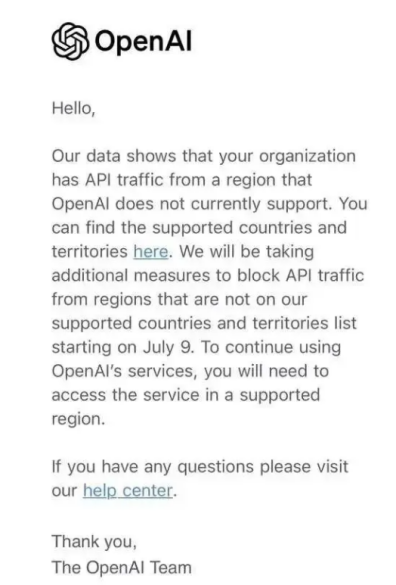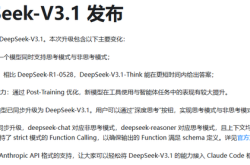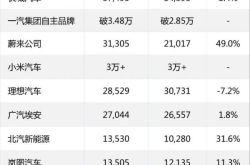OpenAI will terminate its services to China, affecting ordinary users, and bringing a devastating blow to the large model with a simple shell
![]() 06/26 2024
06/26 2024
![]() 600
600
Is AI a gift or a destructive blow to China? OpenAI doesn't have the final say.

Technology also has a national identity, and OpenAI has sounded another alarm bell for Chinese technology companies.
In the early morning of June 25th, API developers from various countries and related regions, including mainland China, gradually expressed on social media that they had received a "warning letter" from OpenAI stating, "According to data, your organization has API traffic from regions that OpenAI currently does not support. Starting from July 9th, we will take additional measures to stop API usage from countries and regions not on the OpenAI supported list."

The official announcement on the OpenAI website also shows that OpenAI's API is currently open to nearly 190 countries and regions. The official announcement also states that accessing or providing access to our services outside of these countries and regions may result in your account being blocked or suspended.
Regarding the impact on relevant Chinese companies and users, an industry insider said, "There have always been many startups in China that simply integrate OpenAI API to create large models or AI applications. This time, they will be directly affected."
The insider further stated that OpenAI's decision to stop providing API services to China may severely impact startups that rely on OpenAI's large models for business packaging, or even be a fatal blow. Those companies that lack independent technological cores and market competitive advantages may be eliminated in the industry reshuffle if they cannot quickly find viable alternatives.
However, this change will also strongly promote Chinese local large model companies to accelerate the pace of independent innovation, encouraging more emerging startups to embrace domestic large models, aiming to lay out in advance and reduce potential external dependence risks in the future, while large technology companies such as Baidu, Huawei, Tencent, and ByteDance will greatly benefit.
For users, using GPT on websites that access the OpenAI API in China will become a thing of the past, and relevant users must "visit supported countries or regions for access."
Regarding OpenAI's approach, reactions from performance and users vary. Some believe that this is a normal measure for OpenAI to optimize resource allocation and ensure service quality globally; while others are concerned that this decision may limit the development and innovation of artificial intelligence in mainland China. Regardless, this change will have a certain impact on AI-related fields, worthy of further attention.







